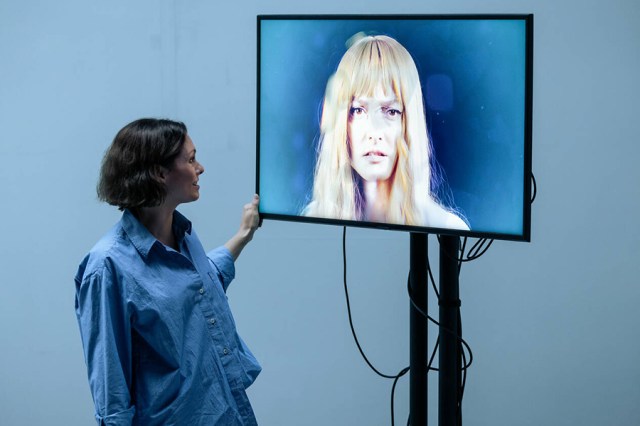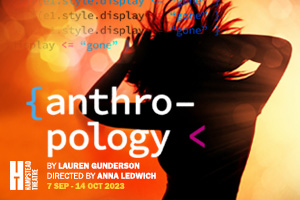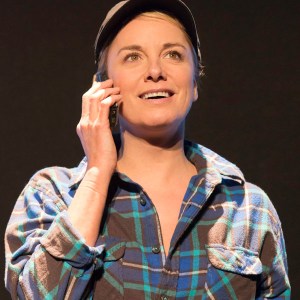anthropology at the Hampstead Theatre – review
AI’s effect on our lives continues to be an enticing topic for playwrights

This ambitious new drama from American playwright Lauren Gunderson, which examines AI and the extent to which it can act as a human proxy, opens a brave new era at the unsubsidised Hampstead Theatre, which should be applauded for continuing to support new writing.
Merril is a Silicon Valley tech nerd who uses her skills to build an artificial version of her missing sister, fuelled by data gleaned from her phone and laptop. But what starts as an attempt to fill an emotional void soon becomes something more urgent – when the AI suggests the sibling she assumed was dead may still be alive.
The idea of AI allowing people to exist after they’ve gone is a potent one, with complicated implications, and Gunderson effectively shows how technology can be both a source of power and threat. In this sense she’s exploring similar territory to Jordan Harrison in Marjorie Prime, recently seen at the Menier Chocolate Factory, which also imagined a world where AI can allow posthumous existence.
It’s also an intriguing mystery, up to a point. The first half hooks us in but the final act, which is presaged by a coup de théâtre set change, struggles to take the story to a satisfying denouement. The portrayal of one character in particular (I won’t say who, to avoid spoilers) feels incredulous, and by the end there are just too many awkward questions hanging over the plot – not least, where are the police in all of this?
But it’s potently performed by the four-strong cast, particularly MyAnna Buring in the central role. One of the most impressive aspects is the way her interactions with her sister’s voice and video image (played by Dakota Blue Richards) flow so seamlessly. The ensemble is completed by Yolanda Kettle as Merril’s lovable lemon curd-making ex-girlfriend Raquel (or the “citrus bitch” as Angie calls her), and Abigail Thaw as the sisters’ drug-addict mum Brin – who manages to make a somewhat stereotyped character sympathetic.
Anna Ledwich’s lucid production seamlessly incorporates the impressive video design of Daniel Denton, projected on Georgia Lowe’s white box set. Too often futuristic dramas are served alongside visuals that struggle to convince, but not here. The only grating aspect is Max Pappenheim’s underscoring music, which feels unnecessarily foreboding and gives the impression of being stuck in the menu screen of a video game.
Gunderson puts some big themes under the microscope that are both topical and worthy of attention; not just the implications of artificial intelligence, but violence against women, which hangs heavily over this traumatised family. But the thriller plotline doesn’t hold together – for one thing the AI seems to rely on information that would be readily available to a human detective – and as a result it feels in need of further refinement to fulfil its obvious potential.
















